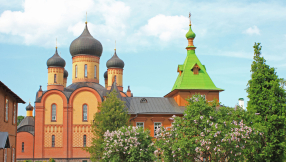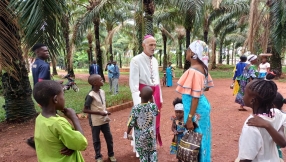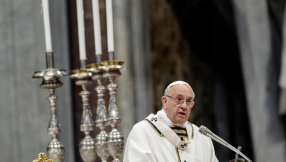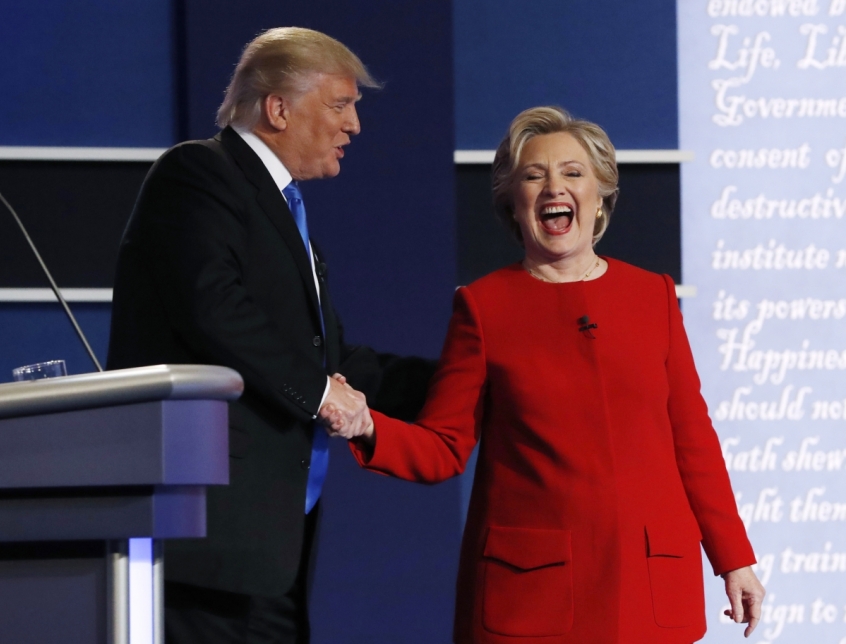
It's the subject neither candidate wants to talk about.
In what is perhaps an indication of the secularisation of the US political discourse, God was almost entirely absent from discussion in last night's presidential debate, which covered the economy, foreign policy, Donald Trump's tax returns and Hillary Clinton's emails.
Clinton fleetingly praised "the vibrancy of the black church" during a brief section on inner-city communities, but it was the only line from either of the candidates relating in any way to faith matters.
Perhaps the candidates have sub-contracted faith issues to their respective running mates, Tim Kaine for Clinton and Mike Pence for Trump. The vice-presidential candidates will have their own debates later in the campaign, and these may well involve faith.
But for a country in which, according to a recent survey, 73 per cent of people consider themselves Christians, and where almost every president has been a practising Christian, there was a noticeable absence of religion in last night's 90-minute debate.
For her part, Clinton refused to touch on her apparently deep personal faith, despite her character coming under sustained attack from her rival.
As a long-time friend of Clinton, Lissa Muscatine earlier this year told the New York Times: "It's been a remarkably private part of this hugely public person's existence. It's almost like, because it's so private and has motivated her so deeply, that she doesn't talk about it."
One of the mysteries of this campaign has been Clinton's reluctance to talk about God.
It's now eight months since she so unusually opened up about her faith, at a town-hall-style gathering inside a gymnasium in Knoxville, Iowa on 25 January.
Asked by a Democrat-leaning voter about her beliefs back then, she opened up: "I am a person of faith. I am a Christian. I am a Methodist. I have been raised Methodist. I feel very grateful for the instructions and support I received starting in my family but through my church, and I think that any of us who are Christian have a... constant, conversation in our own heads about what we are called to do and how we are asked to do it."
Now however, that appears to have been almost a one-off. The Democrat has barely been seen visiting a church during the campaign, let alone returned to the subject of her faith.
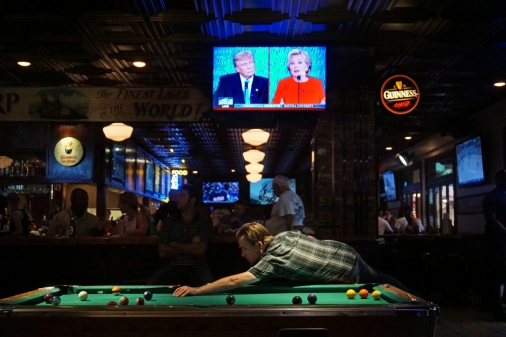
Meanwhile Trump has been wooing the evangelical vote, and recently brought in 33 Catholic advisers to his team. However he last night failed to raise his land-mark policy of abolishing the Johnson amendment which prohibits pastors endorsing political candidates from the pulpit, so-called 'religious freedom' issues which have seen the Obama administration pitted against the Catholic Church, or the drastic liberalisation of Clinton's platform on abortion.
It's a platform which calls for the overturning of two key amendments in US law: the Hyde Amendment, which bans federal money from directly funding abortions, and the Helms Amendment, which bans federal dollars from funding abortions abroad. These positions led Michael Wear, Obama's Catholic former director of faith outreach, to call the Clinton campaign's position on abortion "morally reprehensible". He told the Catholic News Agency that the "extreme" stance shuts out millions of pro-life voters.
This is just one small example of a seemingly obvious debating point for Trump.
Yet the Republican, despite a rambling performance which saw a calm Clinton surely get the better of him this time, seems equally reluctant to veer into religion.
Clinton does welcome references to character, and she had plenty of opportunity to rebut Trump's claims last night that she did not have the "stamina" to be president. But she appears to be much more comfortable talking about her experience than her faith, despite the apparent success of Trump's anti-politician stance against Washington establishment figures ("She's got experience. But it's bad experience.")
Perhaps the pair will have an opportunity to discuss the Godly during their next two encounters, which will come on October 9 and 19. But this seems far from certain given the curious disconnect that sees both candidates, and the broadcast media, regard religion as highly unfashionable, in stark contrast to the electorate itself.










